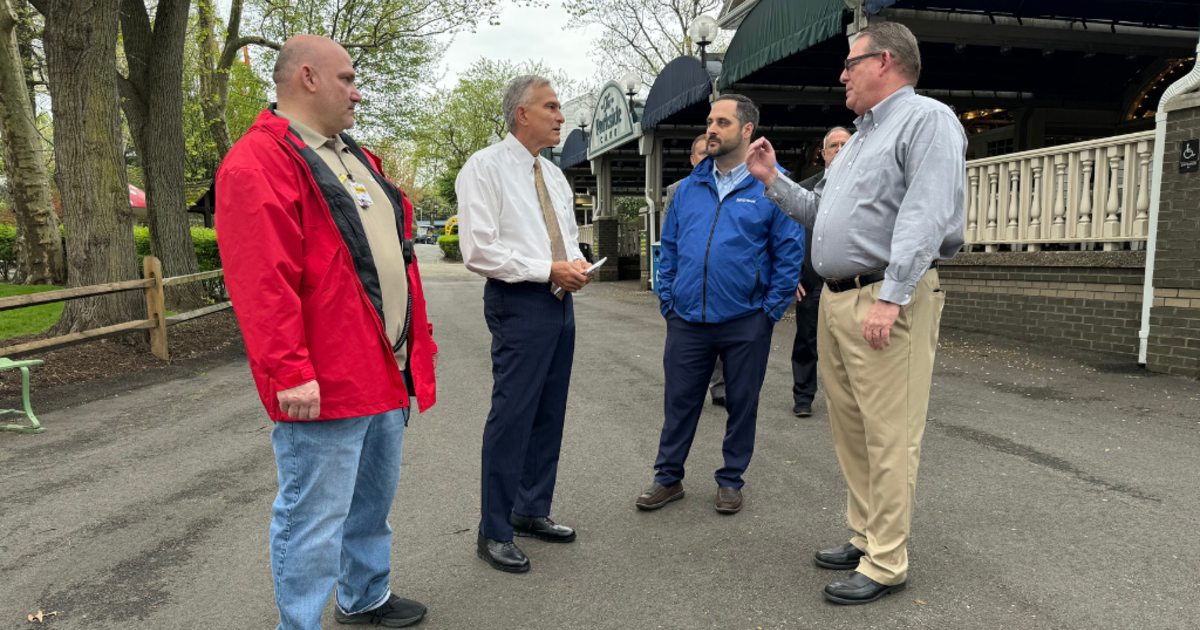Allegheny Co. Health Dept. Launches Efforts To Combat Weather-Related Pollution Events
PITTSBURGH (KDKA) - After the Air Quality Index showed that the Clairton and Liberty areas had some of the worst conditions in the nation last week, the Allegheny County Health Department says it's launching efforts to combat weather-related pollution events.
On Dec. 24 and Dec. 25, a Code Orange Air Quality Action Day was issued for the Liberty-Clairton area. A Code Orange means there's an unhealthy pollution level for sensitive people, the state Department of Environmental Protection explained.
Allegheny County Health Department Interim Director Ronald A. Sugar says in a statement the area experienced "strong and lengthy temperature inversions" last week. These inversions are caused by extreme weather like light wind, heavy fog and a warm front. This then causes pollutants to be trapped closer to the surface.
In the past 10 years, the health department says there were four weather-related events similar to the ones last week, while there were two in 2019 alone.
Sugar says the county health department recognizes the increase of these temperature inversions is associated with climate change.
Residents and activists say the weather isn't the only factor involved in poor air quality.
Matthew Mehalik, the executive director of the Breathe Project, said even though the weather has an impact on the amount of pollution emitted by the Clairton Coke Works plant, the weather isn't what is actually causing the pollution.
He says it's the emissions from the coke plant that accumulate and don't get blown away.
They stick around and cause health problems for people.
"We suspect that if the weather changes, when there's more wind, it helps to blow pollution away. But the weather shouldn't really be a control strategy for protecting our health in Allegheny County. We really need leadership to step up and say this is not acceptable," Mehalik told KDKA last week.
On Thursday, the Allegheny County Health Department announced three steps that will be taken to combat these "health-threatening, weather-related pollution events."
The three steps: air quality regulation aimed at emission mitigation requirements during temperature inversions, building infrastructure to forecast inversion events and working with local and federal officials to improve air quality.



